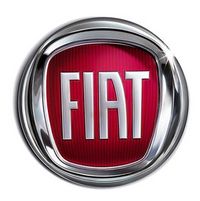Fiat Believes All Fleets Should Use Whole Life Costs As a Basis For Running Company Vehicles
 |
SLOUGH – September 24, 2008: As fleets of all sizes feel the pinch with increasing fuel, VED, insurance and finance costs, and even more emphasis placed on emissions, Fiat believes that now is the time for ALL fleet users to choose cars for their choice list based on a whole life cost basis.
Whole life vehicle costs accurately represent all aspects of running a vehicle over the duration of a contract, and help fleets to budget more accurately, but many companies still don’t take this issue seriously enough.
In certain cases, vehicles selected for their low initial purchase price, or perceived superior fuel economy, could end up costing users more than they bargained for when all running costs are taken into consideration, said Fiat.
To put this into perspective, Fiat’s highly-efficient Bravo Active Eco MultiJet 105 diesel model, introduced this year, boasts long-term running costs of just 34.65p per mile over three years/60,000 miles, according to the latest Carcost figures.
This figure is comparatively meaningless when viewed in isolation, but has real significance when stacked up against key rivals. Under such circumstances, it’s possible to see where the new Eco MultiJet 105 can significantly cut the cost of motoring for fleets seeking a highly efficient and practical, medium-sized, five-door hatchback.
As the figures below reveal, the Fiat boasts £506 lower fuel costs than the Vauxhall, is £870 cheaper to purchase than the CitroŽn and runs out a £513 saving in running costs over the Vauxhall.
The Bravo Active Eco MultiJet 105 has the most powerful engine of the sample group with 105 bhp; it boasts advanced 1.6 litre diesel engine technology matched to a six-speed transmission, a leading economy figure of 62.8mpg, and low emissions of just 119g/km CO2.


